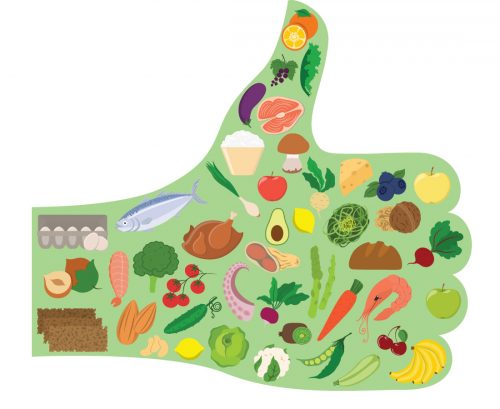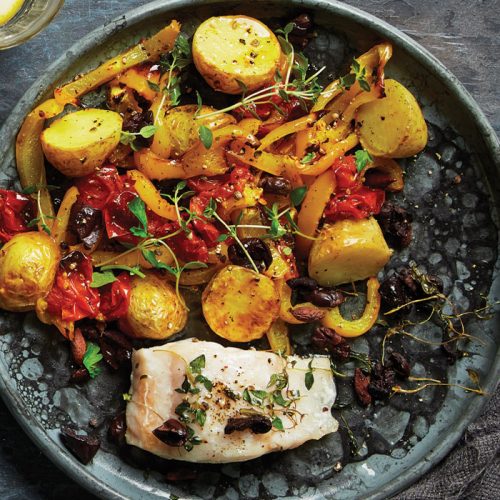
Niki Bezzant calls out current eating trends as unsustainable for the future of our planet.
More than ever, we are becoming aware of the links between what we eat and the health of the environment.
What and how we eat today has important implications for what and how we eat in the future. The question is, can we sustain ourselves as a planet, if we keep eating the same way we are now? The emerging answer seems to be ‘no’.
We’ve seen this reflected in several large pieces of research, including an alarming report in the Nature journal outlining how we might be able to keep the global food system within environmental limits so we don’t exceed the planetary boundaries that define a ‘safe operating space for humanity’. The implication here is, if we destroy the planet to the point that we can no longer produce enough food, humanity is in trouble.
We can’t ignore this existential threat any longer. There’s an inextricable link between the health and existence of the people and the health of the planet.
The good news is, the things experts say are important for environmental sustainability also happen to be good for our health at an individual level. And it’s those things they’re now focusing on and pushing to be integrated into health advice. A growing body of expert opinion is saying we can’t keep making general health guidelines without taking sustainability into account.
So, what is a sustainable diet? Simply put, it’s a diet that has a low environmental impact.
According to recent research by Massey University, sustainable diets are “protective and respectful of biodiversity and ecosystems, culturally acceptable, accessible, economically fair and affordable; nutritionally adequate, safe and healthy while optimising natural and human resources”.
The first attempt at coming up with a sustainable diet was contained in the EAT-Lancet Commission report earlier this year. It outlined a plant-based diet containing little red or processed meat and no processed foods. It got a lot of press for being too extreme, but in many ways, it wasn’t far from what many experts would say is a healthy way to eat.
The Massey study looked at this topic from a different angle — the attitudes and opinions of professionals in the agriculture, environment and health sectors towards including sustainability thinking into eating and activity guidelines for Kiwis.
Perhaps, unsurprisingly for people directly involved with the health of people and of the land, the research found 77 per cent of 298 professionals surveyed supported the inclusion of sustainability characteristics into our official guidelines. In particular, there was high agreement with the ideas of promoting whole foods, sustainable seafood, sustainable lifestyle behaviours (e.g. physical activity), and of limiting processed foods and reducing food waste.
Two thirds of study respondents (63 per cent) said they believe New Zealand’s current food system is not sustainable, although this varied depending on which sector the respondents worked in. More than half (57 per cent) of the agriculture sector professionals believe New Zealand’s food system is sustainable, however, less than 15 per cent of respondents from the health and environmental sectors thought it was.
This discrepancy has caught other countries out when they’ve tried to include sustainability goals into their official dietary guidelines. In the US and Australia, powerful industry lobbying saw no consideration given to environment in new guidelines, despite a push by the health and environmental experts for this.
The Massey researchers say no countries currently meet basic dietary needs for their citizens at a ‘globally sustainable level of resource use’ but this may be changing. Internationally, governments are beginning to include sustainability characteristics into their national dietary guidelines. There are now at least 12 countries which include some element of this, including Brazil, Qatar, Sweden and, just recently, Canada.
These countries have integrated sustainability into their guidelines ‘as a primary, interconnected consideration for healthy eating’.
If we’re to do this in NZ, we should act fast. Our rates of obesity and associated diseases are growing. And it’s fast dawning on us that we’re not as clean and green as we might have once thought. The Massey research points out that although NZ is a small emitter in absolute terms, accounting for <0.2% of global emissions, our food system is a major contributor to climate change, with per-capita emissions fifth highest among OECD countries in 2011. We are seeing damaged ecosystems, depleted fish stocks, soil degradation and loss of biodiversity.
Since our nutrition guidelines seem to be updated only every 10 years or so, it’s unclear whether we’ll see action on this any time soon. But in the meantime we can, in our own kitchens, put our own sustainability and health goals into action.
11 ways to make your diet more sustainable and minimise your impact on the environment
- Eat mostly plants. You don’t have to be meat free, but less is more
- Limit processed foods. If you can, eat fresh whole foods as much as possible
- Cook most of your food yourself, if you can
- Buy local
- Go to the source, eg, farm gate or farmer’s markets
- Food miles – think about how the food got to you, eg, by sea is better than air freight
- Buy what’s in season
- Try to buy foods with less packaging and plastic
- Consider water use in production
- Choose sustainable seafood. See bestfishguide.co.nz for guidance
- Reduce food waste, use up what you have before you buy more
Article sources and references
- Jones R et al. 2019. New Zealand’s food system is unsustainable: A survey of the divergent attitudes of agriculture, environment, and health sector professionals towards eating guidelines. Frontiers in Nutrition 6:99https://www.frontiersin.org/articles/10.3389/fnut.2019.00099/full
- Springmann M et al. 2018. Options for keeping the food system within environmental limits. Nature 562:519-25https://www.nature.com/articles/s41586-018-0594-0
- Willett W et al. 2019. Food in the Anthropocene: the EAT–Lancet Commission on healthy diets from sustainable food systems. Lancet 393:447-92https://eatforum.org/content/uploads/2019/01/EAT-Lancet_Commission_Summary_Report.pdf
www.healthyfood.com










